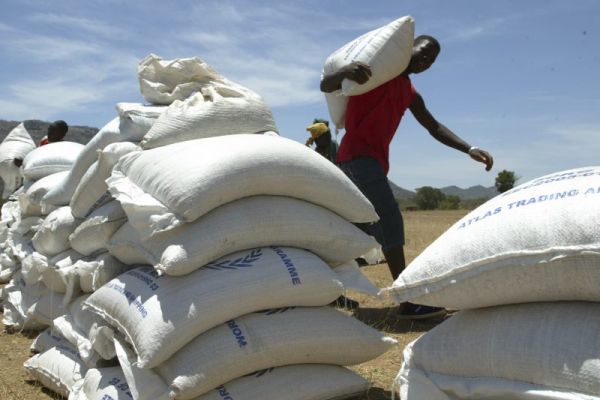The government has admitted facing logistical issues in distributing food relief to vulnerable communities, citing the difficulty of transporting food from provinces with surpluses to those with shortages.
Some areas have not yet received their allocations, while the government is supposed to be moving over 138 metric tonnes of maize to 1,620 rural wards, requiring about 4,000 trucks for timely transport.
In May, Minister of Public Service, Labour, and Social Welfare, July Moyo, urged District Development Coordinators (DDCs) to prioritize local transporters for delivering maize to rural wards, saying this would support local businesses and expedite food distribution amid the drought.
However, DDCs reported that some truckers, who were owed for previous services, were reluctant to move food without receiving payment.
Responding to questions in Parliament about why some people in resettlement areas were not receiving food relief, the leader of government business, Ziyambi Ziyambi, acknowledged the distribution challenges.
“After the ZIMVAC made investigations and generated a document depicting the situation, the Government decided to intervene with a food relief program, which does not differentiate between new and old resettlement areas. The challenge at the moment is the distribution logistics,” said Ziyambi, who is also the Minister of Justice, Legal, and Parliamentary Affairs.
Ziyambi said the government desired that “if possible, every household or individual should benefit and get food supplies sufficient for three months.”
After three months, another distribution cycle would commence. He added that it was important to create inter-ministerial relationships to expedite logistics so grain could be distributed to different communities.
“Peripheral areas should be prioritized. Every area should be covered, and every place should benefit from the program,” Ziyambi said.
“Mashonaland West and Mashonaland Central are where we get most of our grain. Transporting grain from these provinces to other provinces has been the challenge. This is what is being worked on.”
ZAPU National Organizer, Ndodana Moyo, told CITE that the government was indeed delaying food distribution in some areas, despite knowing that the 2023/2024 farming season was a national drought disaster.
“These delays have several effects. Firstly, people who are taking medication daily need food. If they do not have enough food, it affects their medication intake, compromising their health,” he said.
“Secondly, we have the elderly who do not have other means of receiving food. If we are not careful, they will die from hunger-related causes.”
Moyo also noted that school children leave their homes without food and return to the same hunger situation, which affects their performance at school.
“Additionally, villagers who are self-sustainable and rely on subsistence farming or odd jobs cannot work if they are hungry. This directly affects household economies and indirectly the national economy.”
The ZAPU national organizer urged the government to prioritize the food mitigation program and halt other less important projects.
Meanwhile, Wedza North MP Itai Ndudzo questioned Ziyambi about what the government is doing to ensure that grain reaches all areas without creating a perception of a divide between rural and resettlement communities.
“At times, those in rural areas might be far, and those in resettlement areas are near but still not considered. What is the government planning to do to correct this?” asked the MP.
In response, Ziyambi said it was not government policy to skip beneficiaries but acknowledged that corruption might be occurring.
“The President said everyone should benefit. If a truck bypasses villagers and goes further, that is not correct. I suggest that you report to the Social Welfare so such cases can be investigated,” he said.

